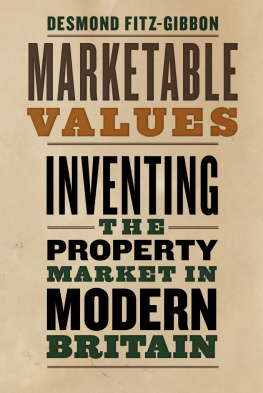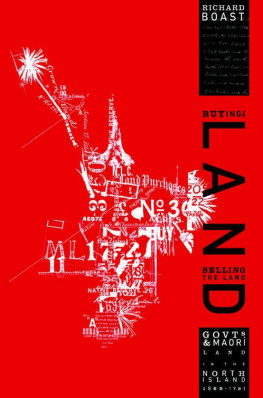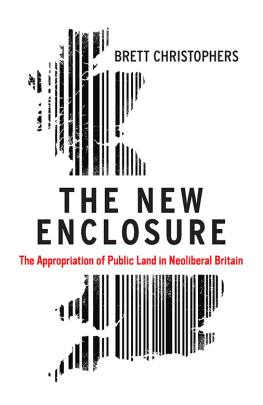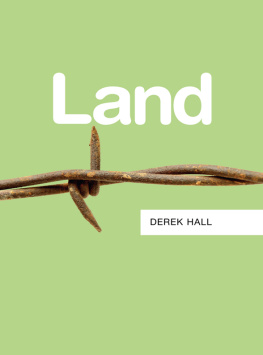The University of Chicago Press, Chicago 60637
The University of Chicago Press, Ltd., London
2018 by The University of Chicago
All rights reserved. No part of this book may be used or reproduced in any manner whatsoever without written permission, except in the case of brief quotations in critical articles and reviews. For more information, contact the University of Chicago Press, 1427 E. 60th St., Chicago, IL 60637.
Published 2018
Printed in the United States of America
27 26 25 24 23 22 21 20 19 18 1 2 3 4 5
ISBN -13: 978-0-226-58416-4 (cloth)
ISBN -13: 978-0-226-58433-1 (paper)
ISBN -13: 978-0-226-58447-8 (e-book)
DOI : https://doi.org/10.7208/chicago/9780226584478.001.0001
Library of Congress Cataloging-in-Publication Data
Names: Fitz-Gibbon, Desmond, author.
Title: Marketable values : inventing the property market in modern Britain / Desmond Fitz-Gibbon.
Description: Chicago : The University of Chicago Press, 2018. | Includes index.
Identifiers: LCCN 2018020206 | ISBN 9780226584164 (cloth : alk. paper) | ISBN 9780226584331 (pbk. : alk. paper) | ISBN 9780226584478 (e-book)
Subjects: LCSH: Real propertyGreat BritainHistory19th century. | Real propertyGreat BritainMarketingHistory19th century. | Real property auctionsGreat BritainHistory.
Classification: LCC HD 593 . F 58 2018 | DDC 333.30941dc23
LC record available at https://lccn.loc.gov/2018020206

This paper meets the requirements of ANSI / NISO Z 39.481992 (Permanence of Paper).
Locating the Property Market
Sir Walter thus reimagined the property market as a network of benevolent charity.
There was nothing remarkable in Sir Walters attitude toward the selling and leasing of property. His desire to keep his estate intact, to protect the familys status and reputation, and to hide any sign of financial trouble from the outside world, reflected common aristocratic assumptions about the importance of landed property as a social and political institution of nineteenth-century British society. There was also nothing unusual about Sir Walter resorting to the market when the need ultimately arose, as it did for many other owners of land seeking to acquire, develop, or consolidate
Less than a century later, the property market looked very different. As one correspondent sarcastically stated in the Estates Gazette, a leading property trade journal founded in 1858, the issue was not whether the market should be visible, but rather whether or not it was visible enough. Where is the so-called Property Market, wrote An Old Hand, and what of its quotations?
What, then, did it mean to imply that the property market was absent or missing? For this correspondent, the misnomer of the property market hinted at one answer. The property market could not be seen because none of the activity associated with the buying and selling of land conformed to an ideal type of market that could readily be identified for other commodities, Property sales were far too varied and idiosyncratic for such certainty. Whereas the property market might have an ostensible home in the auction mart, it could never offer up a definite price for a fixed article. Prices for land, moreover, were governed by entirely different data to that which affects other property. Desire and status, no less than reason and investment, guided the decisions of property owners, and the self-evident dissimilarity between properties in different locations made them impossible to compare in anything like the fashion used to guide security or commodity trades. The property market may have looked similar to other markets on the surface, but taken as a whole, as an assemblage of people, practices, and ideas, it did not work as a real market should. For all these reasons, An Old Hand struggled to see the property market in any of its more obvious places, but did so from the perspective that seeing it better was a necessary and laudable reform. The letter concluded with a recommendation that advertisements be more targeted so as to increase competition for properties likely to be in higher demand. Both Sir Walter Elliot and An Old Hand questioned the nature of lands marketability, whether or not it could or should be treated fully as a commodity or as something else; but for the latter, what mattered most was how to configure the uniqueness of land in ways comparable to other commodities. These paradoxical desiresto not see the market at all and to see it most clearlydefined the parameters by which Britons invented a new kind of property market.
This is a book about how the practice, organization, and perception of the property market changed over the course of the nineteenth century and in response to evolving debates about the nature of lands commodity status. I argue that, while land had long been subject to trade, it was only during this period that Britons began to think about it in aggregate terms, associating it with the more abstract space of a property market that could, despite this abstractness, be made visible in a variety of new ways, from places of sale to the journalistic ventures that amplified the views of practitioners like An Old Hand. Imagining the property market was not simply about importing new ideas about the commoditization of property; nor was it a case of a market logic restructuring all property exchange in its own image. Making the property market visible took workcultural work that was anchored in particular histories of people, time, and place. Rather than treat the property market as a given, as something that was already present in some immutable form, this book demonstrates how the market became culturally visible and normalized in very different ways from what had existed before.
Throughout this period, both the meaning of lands marketability and its institutional organization were debated with varying degrees of intensity and across a range of cultural locations, but always with a sense that the answers were important and freighted with implications beyond the simple act of exchanging rights for money. Indeed, for many, the commodity status of land was part of a much larger land question that was argued throughout Britain and its expanding empire and encompassed questions of landownership, social relations, political representation, and imperial power.
Part of the invisibility of the property market, according to many reformers, had to do with legal restrictions placed on it. For example, calls to liberalize the transfer of property were common throughout the mid-Victorian years. Richard Cobden was given the most credit for popularizing free trade in land as a slogan in 1864, but the idea was by then well established in radical politics, having emerged alongside the campaign for corn law repeal in the 1840s. Up to the mid-1880s, then, calls for free trade in land insisted that the project of reform needed to address the absence of a fully liberalized market.
The passage of the Settled Land Act in 1882, which permitted life tenants of landed estates to sell settled land under certain conditions, did little to appease free traders; but by the mid-1880s their demands appeared far less radical in light of new arguments put forward to address the land question. In 1881, for example, Alfred Russel Wallace founded the Land Nationalisation Society (LNS) to help lobby for an end to landlordism in Britain via the state purchase of all private land. Georges supporters established the English Land Restoration League (ELRL) to further the aim of a single land tax. Each of these schemes was revolutionary in different waysWallaces by its proposal to vest all ownership in the state and Georges by the refusal to compensate owners for their individual lossesbut at their core both cast a skeptical eye toward the supposed virtue of privately owned land and its commoditization.










 This paper meets the requirements of ANSI / NISO Z 39.481992 (Permanence of Paper).
This paper meets the requirements of ANSI / NISO Z 39.481992 (Permanence of Paper).